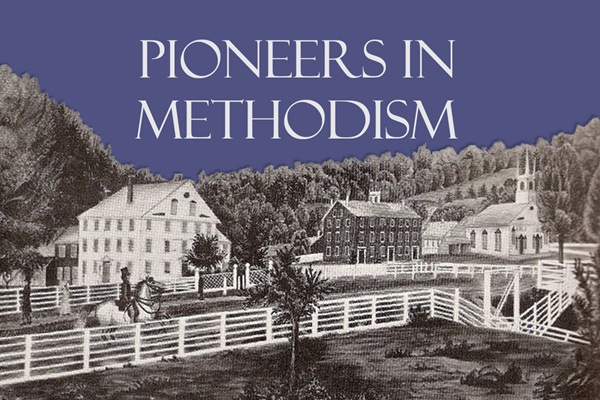Betsey Dow Twombly (1818-1900) was a pioneer in education for women and men, taught one of the first courses in the early beginnings of Boston University School of Theology, and was a leader in supporting women in mission.
Born in Cabot, Vermont in 1818, Betsey was the daughter of the Rev. John G. Dow. In 1837, when she was just 19 years old, she became the preceptress (teacher and head of “women’s work”) at the newly organized Newbury Seminary, a Methodist high school for the New Hampshire and Vermont Annual Conferences in Newbury, Vermont.
Not long after her arrival at Newbury, she organized a literary society for young women only – the first of its kind in the country. While women were allowed a formal education during the mid-nineteenth century, the widely influential “cult of domesticity” of the period considered the home to be the proper “sphere” for women. The literary society caused quite a stir among those who believed these young women “were going beyond their sphere, being bold and presumptuous in assuming what belong to gentlemen only.” (History of Newbury, Vermont by Frederic P. Wells, The Caledonian Co., 1902)
That same year a group of young men interested in entering the Methodist ministry approached the male faculty at Newbury and requested a class in Mental Philosophy, a subject with which candidates for ministry needed to be familiar. The male teachers already had full loads, so the class was taught by Miss Dow. This class and others evolved into the Newbury Biblical Institute in 1841 – the first formal Methodist theological training institution for both women and men in the country. The Institute moved to Concord, New Hampshire in 1847 as the General Methodist Biblical Institute, and then to Boston, evolving into what is known today as the Boston University School of Theology. Thus, the origins of the oldest Methodist seminary in existence today can be traced to a class in Mental Philosophy taught by Betsey Dow.
Betsey’s influence continued when she became involved in organizing the Woman’s Foreign Missionary Society. Her influence and the respect for her leadership were especially felt at their meeting in May 1869. Men from the church’s Missionary Society came to Boston to convince the women to turn control of their funds over to the men’s organization. Betsey made the motion that the women should maintain control over their own funds. The motion was approved, making the Women’s Foreign Missionary Society the first and only Protestant women’s missionary society at the time to do so. That legacy has been continued through the work of United Methodist Women in The United Methodist Church today.
This content was produced by Ask The UMC, a ministry of United Methodist Communications, in collaboration with the Rev. Pat Thompson, Historian for the New England Annual Conference.





